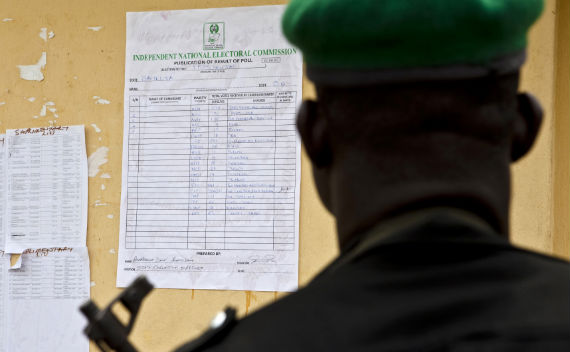Nigeria Prepares for More Elections
More on:

Despite negative developments in Uganda and ongoing security issues in Ivory Coast, most of my focus has been on the aftermath of the Nigerian presidential elections. The bottom line seems to be that the northern half of the country—or at least much of it—does not accept incumbent president Goodluck Jonathan’s election. Rioting has been widespread in the North, but it is difficult to get details about it. In the Nigerian press, Goodluck Jonathan and Muhammadu Buhari are being urged to do what they can to resolve the situation. It is unclear to what extent they can influence the rioters in the North, whom I doubt they control. However, at least in some parts of the North, the rioting appears to have subsided, in part because of joint military and police patrols but also because of food distribution issues.
On Tuesday, Nigerians will again go to the polls to elect governors, other local officials, and 15 percent of the National Assembly. The expectation is that these contests may well provoke more unrest. Already, gubernatorial contests in Kaduna and Bauchi have been postponed. To me, this implies that the federal government continues to have serious security concerns about two important northern states.
More on:
 Online Store
Online Store